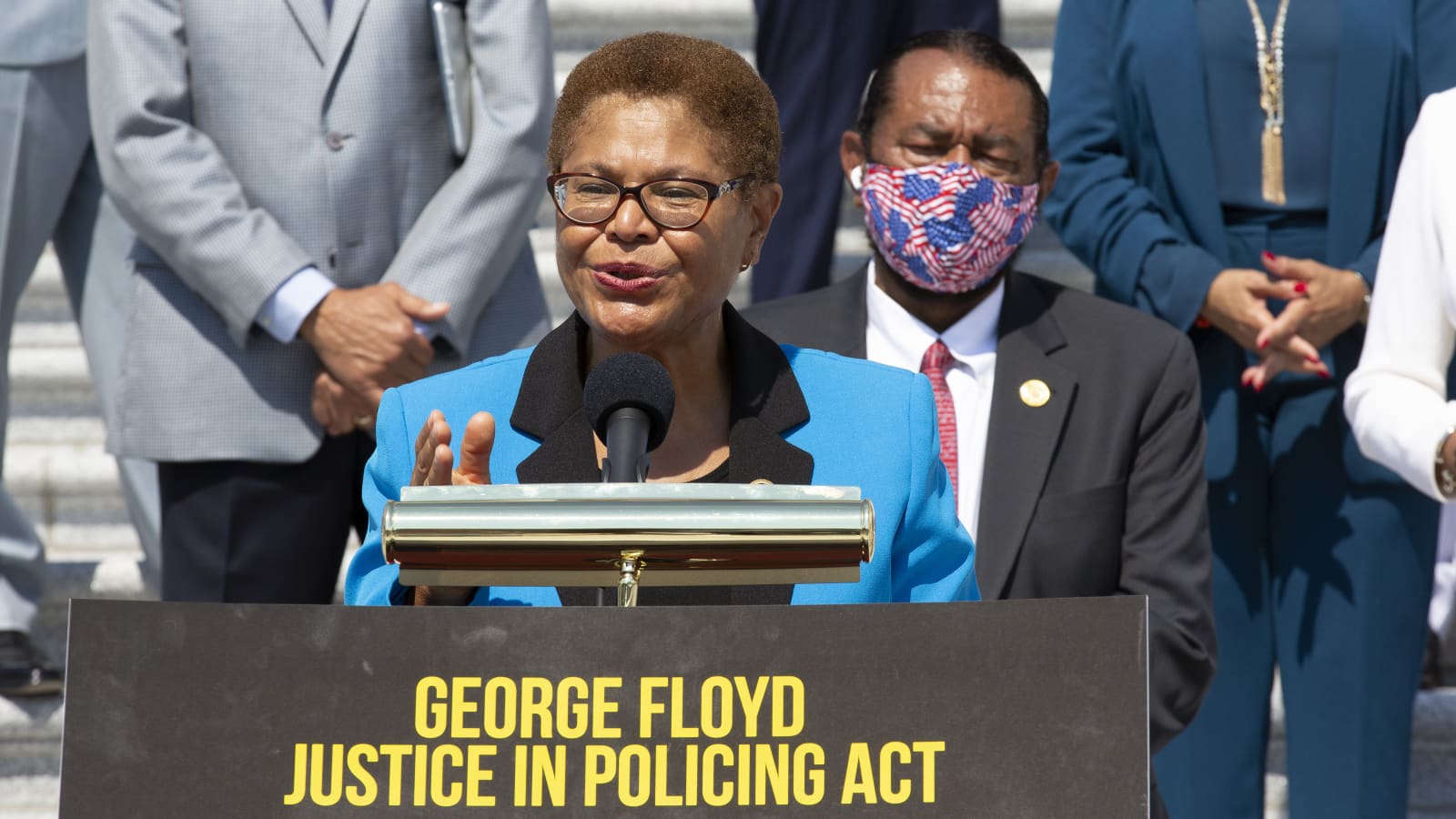The Policing Act is a bill that would reform US policing. It bans chokeholds, develops a national standard for using force, and requires data collection on police encounters.
The bill also aims to curb police racial and religious profiling. It also overhauls qualified immunity, a legal doctrine that shields law enforcement officers from lawsuits over alleged misconduct.
What is the Policing Act?
The Policing Act is a comprehensive legislation aimed at reforming police practices. It seeks to ban chokeholds and other forms of deadly force, rework federal law to ensure officers are held accountable for their actions, establish independent prosecutors, and streamline funding to transform policing in communities.
It’s been called a “red line” by some lawmakers who say it would harm the police’s ability to recruit new officers and keep current ones. And it’s one of several issues that led to a standoff between Democratic lawmakers and the Senate, where Republicans held power.
But now that a black man has died at the hands of police, calls for the passing of the George Floyd Justice in Policing Act have become louder than ever.
What are the responsibilities of the police?
Law enforcement agencies enforce the country’s laws and protect citizens from crime. They include police departments, sheriff’s offices, and federal law enforcement agencies.
There are many different ways in which the police carry out their duties and responsibilities, depending on the type of criminal offense they investigate. For example, they may be armed, have special units dedicated to investigating cybercrimes, or work in a decentralized way that makes them closely tied to the communities they serve.
These differences can be attributed to various factors, including history, population, and crimes in a particular region. However, they also reflect the nature of policing itself.
For example, police use force when they believe it is necessary to protect themselves or the public from harm and under national proportionality standards. In addition, they have to intervene in situations where they think people are being abused or committing a crime.
Those responsibilities also include building trust between the police and the communities they serve. It requires accountability for misconduct and transparency through data collection and public reporting. The prevention of profiling based on actual or perceived race, ethnicity, national origin, religion, sex (including sexual orientation and gender identity), or handicap calls for proactive measures.
What are the penalties for police misconduct?
The police are sworn to protect their communities and often work in tough conditions. Sometimes, however, their zeal leads them to use their power for personal gain.
When an officer commits misconduct, it can mean serious consequences. They could face disciplinary actions, a criminal conviction, or even lose their license to work as a police officer.
Depending on the misconduct, it can include anything from excessive use of force to abuses of authority and bias. It can also violate a person’s civil rights or cause a failure to obey a court order.
For example, the police may have violated a civil right if they discriminate against someone based on race, religion, national origin, or gender. A victim of such a violation can file a complaint with the federal government. It can open a case against the offending officer and seek to change the police department’s policies to end the behavior.
Some police departments have established citizen review boards to investigate and monitor a department if officers show a pattern of misconduct. These boards help to improve police relations and strengthen accountability for the public.
What are the benefits of the Policing Act?
A comprehensive set of changes to how we police and rebuild communities are included in the George Floyd Justice in Policing Act. It would give federal prosecutors greater authority to investigate police misconduct, streamline federal law to prosecute excessive force, and make federal policing the gold standard of effective and accountable policing.
The Act also requires federal police to ban chokeholds and carotid holds, two forms of potentially deadly force; prohibits no-knock warrants in drug cases; and encourages state and local agencies to outlaw them by tying funding to their compliance. In addition, it calls for de-escalation training and limits the transfer of military equipment to police agencies, among other things.
A vital component of the legislation is community policing, which involves training and equipping officers with the skills to partner with their local communities and to work with at-risk individuals. These tools can help de-escalate tensions and prevent crime.
Another critical element of the bill is a national database that collects data on police encounters, including official misconduct, for all jurisdictions nationwide. It also reprograms existing funds to support transformative community-based policing programs, including those that engage people in crisis and connect them with resources.
But there are a few concerns about the Policing Act: It is too vague and too narrow, according to civil rights activists. It fails to adequately address the root causes of racial and economic inequality that fuel excessive police use of force. It also does not require the elimination of qualified immunity, a legal principle that shields police from lawsuits over excessive force.











